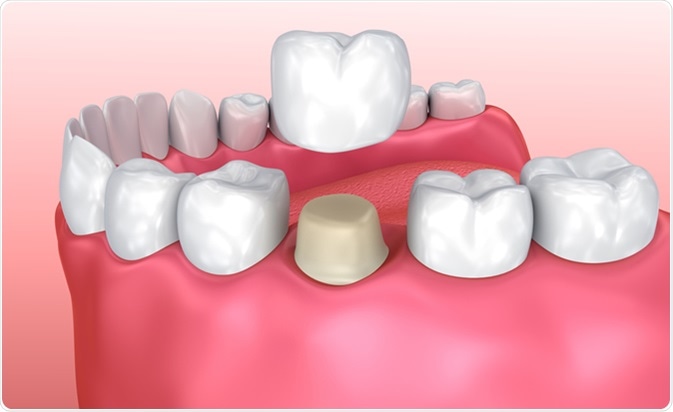Dental crowns are a common dental restoration used to protect and strengthen damaged or weakened teeth. These are specially designed caps that cover the whole visible surface of a tooth to restore its size, strength, form, and look. Dental crowns are essential for maintaining a tooth’s structural integrity and enhancing oral health. Let’s delve deeper into how dental crowns work and why they are essential in modern dentistry.
Purpose of Dental Crowns
- Restoration of Damaged Teeth: Dental crowns are primarily used to restore teeth that have been damaged due to decay, fracture, or wear. They offer a strong and long-lasting remedy to safeguard the tooth structure that is still present and stop further harm.
- Support for Weak Teeth: Large fillings or root canal therapy can weaken and shatter teeth that have had a lot of dental work done to them. Dental crowns provide support and reinforcement to these weakened teeth, reducing the risk of fractures and preserving their functionality.
- Cosmetic Enhancement: Dental crowns not only improve teeth’s functionality but also their attractiveness. They can assist in creating a more aesthetically attractive smile by enhancing the size, shape, color, and alignment of teeth.
The Process of Getting Dental Crowns
- Assessment and Preparation: The process begins with a comprehensive dental examination to assess the condition of the affected tooth and determine the need for a dental crown. If a crown is recommended, the tooth is prepared by removing a small amount of enamel to create space for the crown.
- Impression Taking: After tooth preparation, an impression or mold of the tooth is taken to create a custom-made crown that fits accurately over the tooth. The crown is made at a dental laboratory using the imprint, and it is made to resemble the original tooth in terms of size, shape, and color.
- Temporary Crown Placement: To preserve the prepared tooth’s integrity and protect it while the permanent crown is being made, a temporary crown may be applied. Usually composed of acrylic or stainless steel, temporary crowns serve as stand-ins until the permanent crown is prepared.
- Permanent Crown Placement: Dental glue is used to attach or cement the permanent crown onto the prepared tooth when it is ready. The crown is carefully adjusted to ensure proper fit, bite, and alignment with adjacent teeth. A dental crown may endure a long time with the right upkeep.
Types of Dental Crowns
- Porcelain Crowns: With respect to color and translucency, porcelain crowns are quite similar to real teeth. They may be tailored to match the tint of neighboring teeth and are useful for replacing front teeth.
- Metal Crowns: Metal crowns, such as those made of gold or silver alloys, are known for their strength and durability. They are often used to restore molars and teeth that undergo heavy chewing.
- Porcelain-fused-to-Metal (PFM) Crowns: PFM crowns blend the beauty of porcelain with the robustness of metal. They feature a metal substructure covered with a layer of tooth-colored porcelain, making them a versatile option for both front and back teeth.
Benefits of Dental Crowns
- Strength and Durability: Dental crowns provide excellent strength and durability, allowing patients to bite and chew with confidence.
- Protection of Tooth Structure: By covering the entire visible surface of a tooth, dental crowns protect the underlying tooth structure from further damage and decay.
- Restoration of Functionality: Dental crowns restore the functionality of damaged or weakened teeth, enabling patients to eat, speak, and smile comfortably.
- Enhancement of Aesthetics: With advancements in dental materials and technology, dental crowns can be customized to match the natural appearance of teeth, enhancing the overall aesthetics of the smile.
- Longevity: With proper oral hygiene and regular dental care, dental crowns can last for many years, providing patients with long-term benefits and peace of mind.
In conclusion, dental crowns are versatile restorations that play a vital role in modern dentistry. From protecting and strengthening damaged teeth to enhancing the aesthetics of smiles, dental crowns offer numerous benefits for patients seeking to improve their oral health and overall well-being. If you are considering dental crowns for yourself or a loved one, consult with your dentist to explore the best treatment options tailored to your unique needs and goals.












